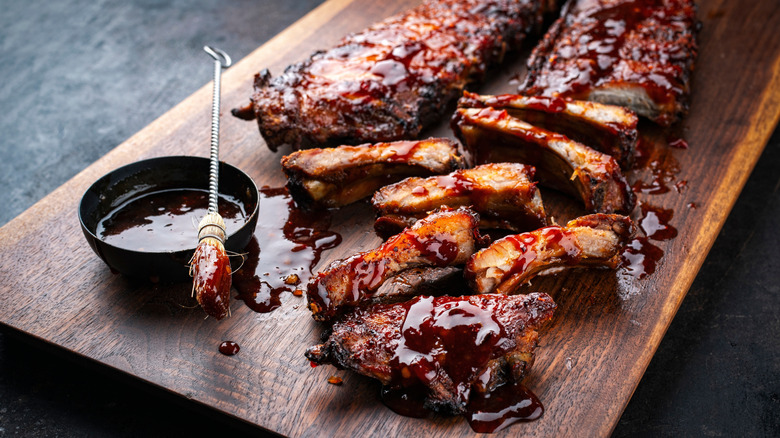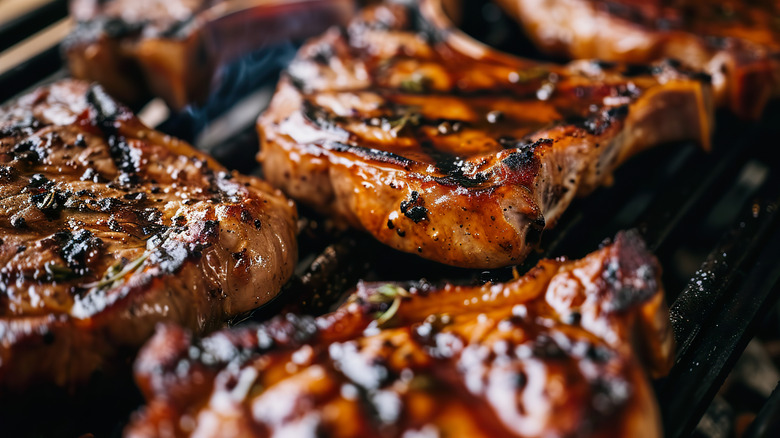Why You Might Feel Sweaty After Eating Barbecue
Way back in 2001, Joey Tribbiani sat in a fictional Manhattan kitchen, wiped his brow, and made a post-Thanksgiving declaration: "Here come the meat sweats." Although it probably wasn't the expression's first-ever use, this episode of "Friends" is believed to have established the term meat sweats firmly in the linguistic zeitgeist. And these days, it's a pretty common turn of phrase when you're chowing down on barbecue or knocking back burgers. You'll see it referenced on social media, television, movies, and even a collaborative ad campaign from Arby's and Old Spice that offered Meat Sweat Defense deodorant products. If you've ever gotten carried away with the barbecue, it's also probably a familiar feeling. Sufferers report experiencing uncomfortable body temperature spikes and sweating after consuming large amounts of meat. But although the symptoms seem to be consistent, the science is somewhat divided.
It's divided primarily because the subject hasn't been the source of widespread study, and there hasn't been any agreement on what might be the cause. There is even debate on whether the meat sweats exist at all or if they're actually just one of those popular food myths. Some carnivorous convalescents have posited an allergy to meat, and although such allergies are probably not as rare as once we once thought, the symptoms don't really align. Allergic reactions generally include symptoms like vomiting, hives, even anaphylaxis — but sweating by itself isn't one of them. With allergies out of the running, another prevailing theory steps in: diet-induced thermogenesis.
Not a scientific designation, but probably a real physiological phenomenon
Diet-induced thermogenesis is a mouthful in more ways than one, but it goes a little something like this: Your metabolism is the series of chemical reactions in your body that keeps it alive, and one of its functions is turning food into energy. Of course, this conversion also requires energy, and when you expend energy, you produce heat. When that energy expenditure and heat production are the result of consuming food, it's a metabolic reaction called diet-induced thermogenesis.
In most cases, the heat of diet-induced thermogenesis is hardly noticeable. But the limited studies on meat sweats have focused on protein digestion as the cause of this physiological process being pushed over the thermal edge. You use around 5-10% of the calories you eat to digest carbs and around 3% to digest fat. Protein, on the other hand, requires around 20-30% to be digested.
Simply put, it takes your body a lot more energy to digest protein. So the theory goes that when you eat a lot of meat, your body expends a lot of energy to break it down. That energy expenditure heats you up, and your body reacts the best way it knows how: Cooling you off through sweating. Unfortunately, the only known way to avoid these meat sweats is to scale back on those succulent barbecue ribs (or even turn to a fruity barbecue substitute like jackfruit). But if you do have to limit your consumption, you'll at least have a theoretical reason for keeping your cool.

